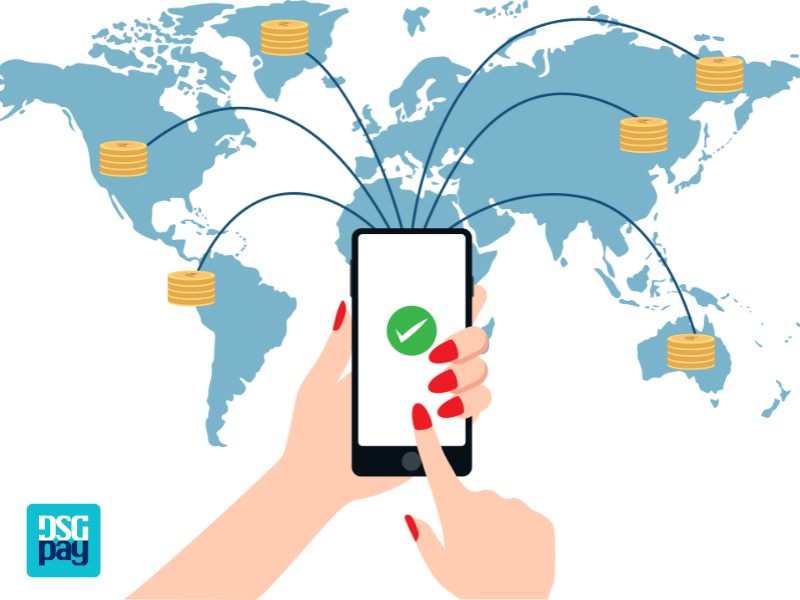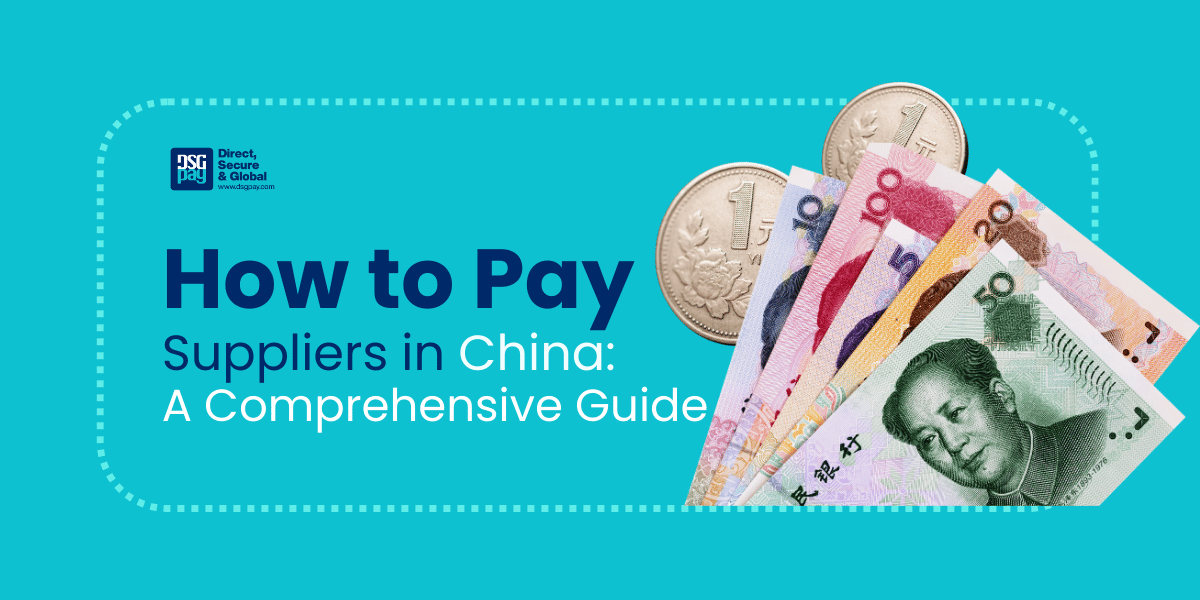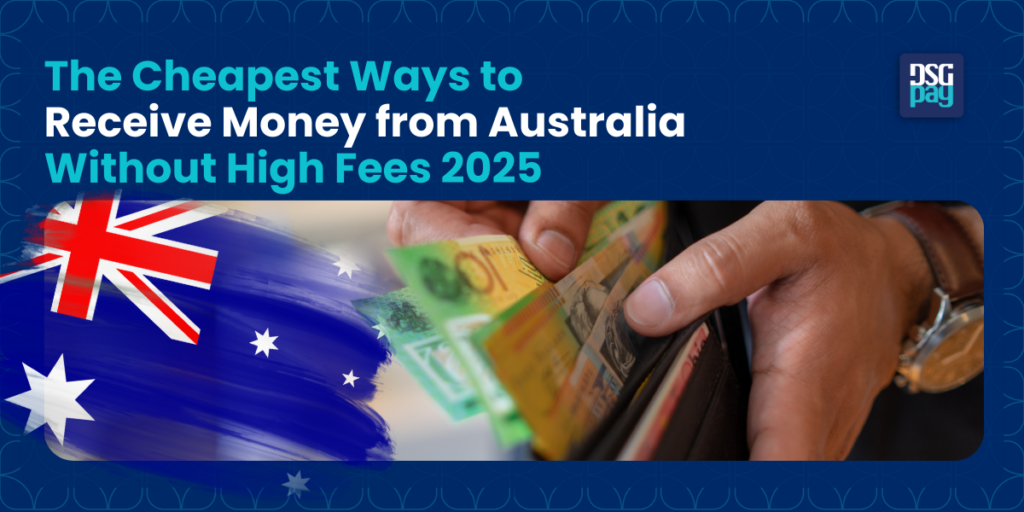If you’re purchasing goods from China, you’ve likely asked yourself: How do I pay my suppliers? What’s the best and most secure way to handle these transactions?
Figuring out how to pay suppliers in China will help enhance your business operations and save time and money. As the Chinese market is increasingly gaining traction, so are international companies looking to choose the most effective, safest, and convenient payment methods for smooth and seamless cash flows.
In this article, we will cover the different ways to pay your Chinese suppliers and their pros and cons so that you can make an informed decision.
Quick Overview: How to Pay Suppliers in China
1. Escrow
Escrow is a method of paying your Chinese suppliers. It offers protection for both buyers and sellers. Buyers are protected from fraudulent vendors that disappear after receiving payment without delivering the goods. Also, sellers are guaranteed payment if buyers fail to remit payment after receiving their order as agreed.
In this mode of payment, funds agreed by the seller and buyer are transferred to a reputable third party for safekeeping. When certain conditions are met (i.e., the buyer receives the purchased goods), the funds are transferred to the seller, with approval from the buyer.
However, China’s most popular online marketplace, Alibaba, offers Escrow service and calls it Trade Insurance. According to Alibaba, trade assurance provides extra security for buyers dealing with Chinese suppliers.
The Asian online marketplace giants support a refund if:
- Shipment is delayed beyond the delivery date
- The product does not meet pre-agreed quality standards.
The limitation of Alibaba Trade Assurance is that only a few Chinese suppliers have signed up for the service because of the 5% fee (which some pass on to the buyer). In addition, buyers need to make full payment at the initial deposit stage.
Pros
- Secure transactions
- Increased supplier credibility
- Buyer protection
- Dispute resolution
- Numerous payment methods
Cons
- Limited supplier options
- Extra fees & charges
- Longer processing times
- Less direct communication
2. International Wire Transfer/Telegraphic Transfer (T/t)
This payment method covers the transfer of funds from one location to another through bank networks and transfer agencies. Bank-to-bank money transfers and transfers via transfer agencies such as Western Union fall under this category.
Bank-to-bank transfers are among the most popular methods of payment for suppliers. They typically take 1 – 3 business days to complete and are convenient for international traders. However, it’s vital to take caution when paying Chinese suppliers through wire transfers because transfers cannot be recalled or revoked. In situations where there are quality issues, delivery delays, or disputes, you’re in trouble. That’s why it’s advisable to perform due diligence in verifying the credibility and legitimacy of the supplier before initiating payment.

When deciding on how to pay suppliers in China using this mode of payment, it’s crucial to consider the charges, including foreign exchange rates and transaction fees. Transfer fees differ across financial institutions. Some banks charge a percentage of the transaction amount, while others charge a fixed fee. Therefore, confirm the transfer charges with your financial institution in advance.
Since transactions can take a few days to complete, your supplier is at risk of currency fluctuations from when the payment was initiated to when they received the payment.
Pros
- Globally accepted
- Transactions can be initiated in-branch or online
- Safe and reliable
- Provides currency flexibility
- Lower costs for large transactions
- Supports large transactions
Cons
- High costs for small transaction
- Processing takes a few days
3. Letters of Credit
Letters of credit, also known as L/Cs, is a payment method in which a bank guarantees payment to a supplier on behalf of a buyer. If the buyer fails to pay, the bank will cover the costs.
As much as letters of credit offer greater protection than other payment methods, they require lengthy paperwork. Some banks only issue letters of credit for buyers who have provided some collateral. Some companies may find the process stressful and time-consuming.
Moreover, banks often charge a percentage of the value of the letters as their fee. The fees can be quite expensive. Because of this, L/Cs are recommended for companies with large orders where the protection outweighs the high costs and complex procedures and paperwork.
Pros
- Provides high protection
- Generally accepted
- Structured payment terms
Cons
- Complex procedures
- High charges
- Requires a good credit standing
- Unsuitable for smaller transactions
4. Sourcing Companies
Hiring the services of sourcing companies is a reliable method to remit payments to Chinese vendors. Sourcing companies often act as intermediaries between you and Chinese suppliers. Since most sourcing companies are based in China, they have an established relationship and in-depth knowledge of the Chinese market.

Through their local presence, expertise, and experience, they are in a much better position to perform due diligence in verifying the credibility and legitimacy of suppliers. They can also help ensure purchased products meet the predetermined quality standards and are delivered promptly.
It’s vital to understand that partnering with a sourcing company comes with extra charges. This may reduce your profit margins. However, the expertise, local presence, vast knowledge, and established relationships that sourcing companies offer far outweigh the costs.
Pros
- Local presence in China
- Expertise, knowledge, and experience
- Saves time and efforts
- Reduced risk
- Offers negotiation support
Cons
- Requires additional costs
5. Western Union
Western Union is another method of paying suppliers in China. Although it is not widely used as other payment methods, some suppliers accept payment through it.
In this mode of payment, you can easily transfer funds online or from one of their physical branches, regardless of your location.
As Western Union does not offer robust protection, it’s crucial to perform background checks and due diligence on the credibility and legitimacy of your Chinese vendors before initiating payment.
Many top-tier made-in-China suppliers avoid Western Union because of its high charges and lack of payment protection. Therefore, if any vendor requests this payment method, it could be a sign of inexperience or illegitimacy; you need to be on alert.
Pros
- Swift payment
- Easy process
- Global support
- Numerous payment options
- It does not require a bank account
Cons
- High charges
- Difficult to revoke/cancel
- Lacks payment protection
- Only a few suppliers accept it
- It does not support payment to a business account
- Poor currency exchange rate
6. PayPal
PayPal is another payment option that supports fast and convenient transactions. Because of its ease of use, support for credit cards, and linked bank accounts, many companies use it to pay suppliers in China, especially for sample or small orders.
In addition to having a complicated payment protection policy, PayPal charges a percentage of the total transaction amount and a currency conversion fee for every transaction. PayPal also has some restrictions in the Chinese market. This makes it an unfavorable option for buying large orders from Chinese suppliers.
Pros
- Fast transactions
- Provides dispute resolution
- Suitable for sample and small orders
- Safe and user-friendly
Cons
- High fees and poor exchange rates
- Chinese suppliers often include 3-5% extra charges
- Withdrawal restrictions for suppliers
- Limited protection for some transactions
DSGPay: a Streamlined Method of Paying Suppliers in China
When deciding how to pay suppliers in China, it’s vital to consider factors such as exchange rates, charges, security, speed, and payment protection before choosing a payment provider.
DSGPay is a leading method of paying Chinese suppliers. With competitive exchange rates, fast and efficient transfer, DSGPay stands out from the list.
With the goal of helping businesses streamline payment across Asia and worldwide, DSGPay has processed thousands of payouts through multi-currency, multi-channel, and virtual accounts to enhance the payment experience of buyers and sellers. Ready to simplify your payments? Get started with DSGPay today!



